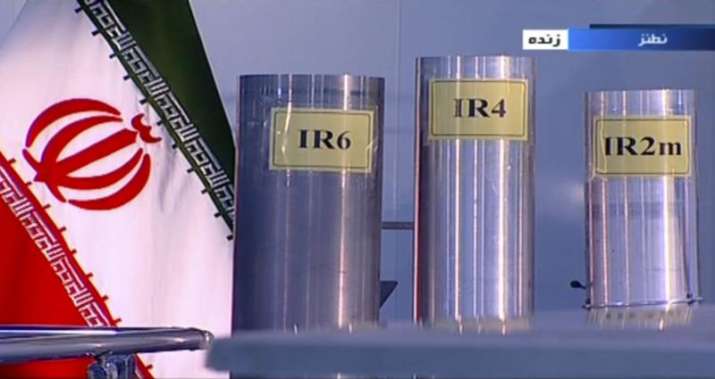
Three versions of a domestically manufactured centrifuge are shown in a live TV program at Natanz, an Iranian uranium enrichment plant in Iran.
The country’s foreign ministry said on Monday that Iran had not yet made a decision about whether to extend an agreement with the UN nuclear watchdog for access to surveillance footage at its nuclear sites.
Foreign Ministry spokesman Saeed Khatibzadeh’s remarks came after a three-month agreement between Tehran and international nuclear inspectors to preserve video data at the country’s nuclear installations expired last week after a month-long extension.
“No decision has been made, negative or positive,” Khatebzadeh told reporters. “Neither the continuation of the deal nor the deletion (of the data). At the moment we are in the back position.”
Iran began limiting UN nuclear surveillance inspectors access to its nuclear sites earlier this year, as part of a pressure campaign on the West over a 2015 nuclear deal with world powers. Tehran has been trying to push European powers to provide relief from oil and banking sanctions imposed three years ago, when then-President Donald Trump withdrew the US from the historic deal.
As part of that effort, Iran dropped the deal’s enrichment limit and is now enriching uranium to 60 percent purity, its highest level ever, although the weapons grade is still less than 90 percent.
To limit diplomatic damage amid ongoing talks in Vienna to revive the nuclear deal, Iran and the International Atomic Energy Agency reached an agreement in late February on newly imposed limits on Tehran’s inspections. Iran promised to save the video data for later access – but only for three months, after which officials threatened to remove the tapes.
The move to erase surveillance footage will further heighten tensions, complicating diplomatic efforts for the US to find a way to lift sanctions and impose sanctions on Iran’s nuclear program.
Negotiations on a nuclear deal have intensified amid the victory of Iran’s hardline judiciary chief Ibrahim Raisi in the presidential election.
Although known for its hostility to the West, Raisi has committed to securing sanctions relief through a withdrawal from the nuclear deal.
Khatibzadeh reiterated on Monday that talks in Vienna would not be affected by the arrival of the new administration, as Iran’s supreme leader Ayatollah Ali Khamenei has the ultimate authority. “Basically, it doesn’t matter under which administration the agreement takes place,” he said.
.